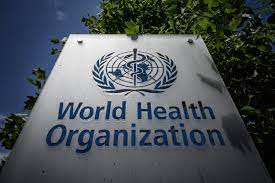Dr Matshidiso Moeti, World Health Organisation (WHO) Regional Director for Africa, has commended African countries for their progress in combating HIV/AIDS.
Moeti said, “As of now, about 21.3 million people are on antiretroviral treatment, which has significantly raised their life expectancy.”

The theme of World AIDS Day, “Take the right path: My health, my right!” serves as a reminder of Africa’s responsibility to safeguard human rights while pursuing the goal of HIV elimination by 2030.
“In spite of having the highest HIV burden globally and limited resources, African countries have made notable progress in HIV control and response over the past decade.
“Botswana and Namibia have successfully curbed mother-to-child HIV transmission rates, meeting the required indicators for the “Path to elimination of HIV” criteria introduced in 2017.
“The WHO African region leads globally in advancements toward achieving the 95-95-95 UNAIDS HIV testing, treatment, and viral suppression targets.
“Seven countries have already achieved these targets, with the overall rating for the region currently at 90-82-76.”
Moeti emphasised that protecting human rights is crucial for achieving universal HIV care.
She also highlighted the importance of addressing social determinants such as poverty, gender inequality, and violence, which are complicated by stigma and discrimination.
“The WHO African region is implementing effective biomedical HIV prevention methods, including pre-exposure prophylaxis (PrEP) recommendations and increased access to options like oral and long-acting injectable PrEP, and the dipivefrin vaginal ring.”
However, Moeti noted that in spite of increased availability of scientific knowledge and tools, universal accessibility remained a challenge.
“This issue requires further investments and policy reforms going forward.”
Moeti reiterated Africa’s collective obligation to protect human rights, ensuring healthcare availability to everyone without discrimination.
She emphasised that stigma and discrimination must not undermine progress, and communities are key partners in co-creating strategies and implementing interventions to address human rights-related barriers to care.
The director concluded by acknowledging the complexity of the HIV response, complicated by increasing disease outbreaks in the African region.
She stressed the importance of strong health systems and integrated, person-centered approaches to healthcare.
“By protecting everyone’s right to health and reducing new HIV infections, Africa can achieve an AIDS-free generation and ensure the sustainability of the HIV response.”(NAN).
READ ALSO:
- Yul Edochie Shares New Advice On Public Opinion
- NAICOM presents operational licence to NPF Insurance Ltd
- NAWIS Can Play an Integral Role in the Nigerian Sports Industry – Olopade
- Olopade Commends Cricket Federation, as Nigeria Wins ICC Men’s T20 Sub-Regional Tourney
- Reps Back Bank of Agriculture Recapitalisation


